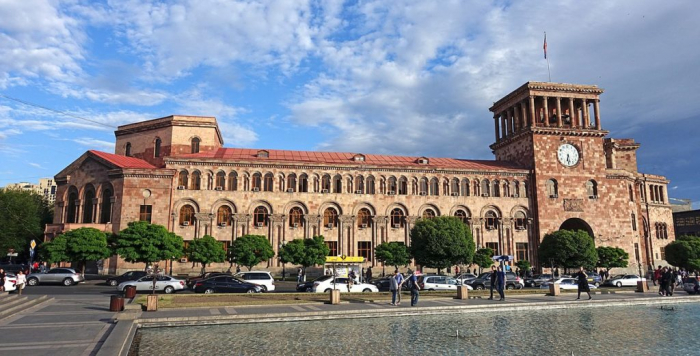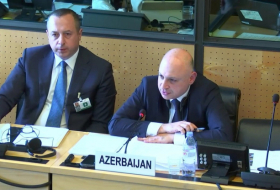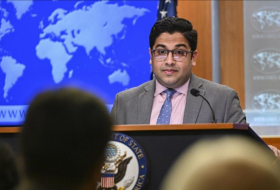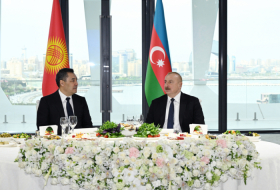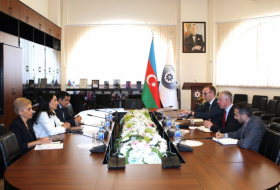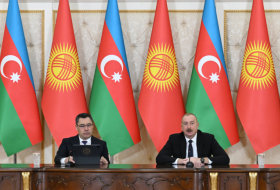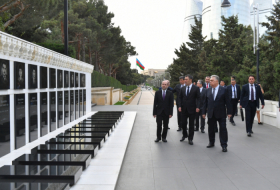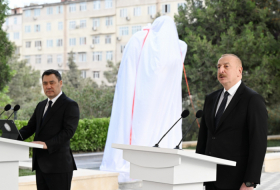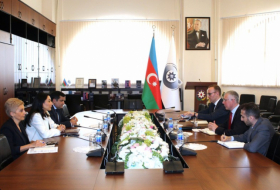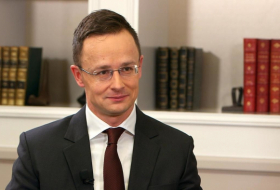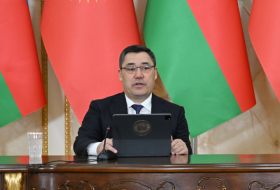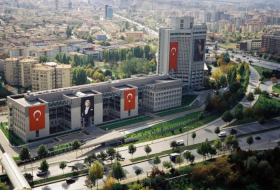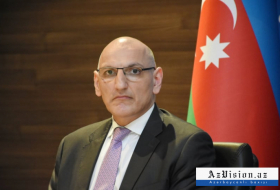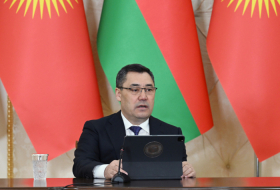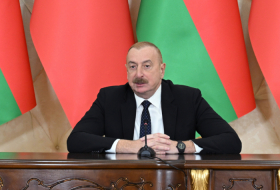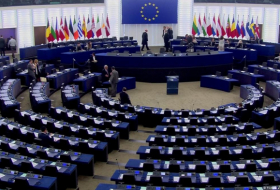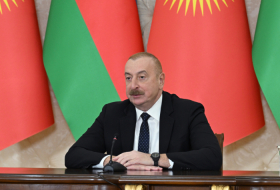Armenian Prime Minister Nikol Pashinyan admitted in his interview to Al Jazeera that the situation for the Armenian economy is unpleasant. He explained away their awkward position by economic problems in Russia due to the special operation in Ukraine and by economic tensions around food supplies.
At the same, it was the aggressive policy pursued by Yerevan over the past 30 years that landed them in isolation from lucrative regional projects, which has driven the economy to such deplorable state. Armenia today has the chance to grab a unique opportunity to turn the table around by pursuing a reasonable policy to unblock promptly the transport communications in the region. But, the steps Yerevan chooses to take testify that the Armenian authorities fail to assess the current situation soberly enough.
The fact is that unfreezing existing transport communications and building new transport corridors serve the interests of Armenia in the first place. However, official Yerevan acts like a weak chess player in time-trouble and allows incorrigible mistakes. We cannot otherwise call the attempts of the Armenian authorities to establish close relationships to carry out transport projects with distant Mumbai, India.
We have been observing a certain stir in Armenian-Indian relations. It is happening for the first time in 30 years, since Armenia declared independence. The Foreign Minister of India paid an official visit to Armenia in October 2021. It is quite remarkable, because such high-ranking Indian officials never honoured Armenia with such visits before. Earlier this year, in April, the Minister of Foreign Affairs of Armenia Ararat Mirzoyan returned a working visit to India and visited the financial centre in Mumbai with Armenian businesspeople. Later in May, Mirzoyan gave an interview to the Indian WION and spoke about the rosy prospects for Armenian-Indian cooperation within the North-South transport project (Chabahar Port) and the Persian Gulf-Black Sea corridor.
We must note at this point that Yerevan had planned to sign a customs agreement with India before Mirzoyan’s visit to Mumbai. It apparently served the purpose of simplifying commodity turnover between the two countries within the cooperation to be established after they implement the premeditated transport corridors. Armenia is clearly desiring to become a major transport hub in the South Caucasus, stretching new routes through its territories. This means that Armenia is claiming nothing less than playing the role of a reliable bridge between Europe and Asia. Yerevan does not spare glowing promises to potential investors with the sole objective of attracting large allocations for yet another escapade.
Well, we all know the saying. One can dream. Particularly as they will hardly find those, willing to take part in such adventures, which is quite understandable. Casting a cursory glance at the lamentable state of the transport and communication in Armenia is enough to see it. The infrastructure is devoid of any visible prospects. Above all, Armenia has no access to sea. This will result in high costs for transportation, delays of goods at the border and numerous customs procedures and rent seeking. The dream Armenian ideologists have longed for, to create ‘Great Armenia from sea to sea’, is dictated precisely by this desire of controlling certain sea routes, which are crucial for world trade. But, these are not the only opportunities Armenia is deprived of. World Bank studies show that even improving infrastructure in landlocked countries does not solve the problem of slow economic development.
Even the hope for a highway running from Iran to Armenia through Syunik seems padded and exaggerated. In certain places, the route passes through Azerbaijani territories and the Tatev-Aghvan road does not meet the plans built in Teheran. The reason is simple. The ‘alternative road’ runs through a challenging terrain, which is winding and absolutely impassable for trucks with trailers. To fuel Iran’s interest, Armenia was forced to hastily announce plans to build a new Sisian-Kajaran road. Yerevan assured that the road, intended to become a part of the North-South project, would be Armenia’s ‘largest and most important project in history’.
Armenia has been building its section of the North-South international corridor for many years. The Minister of Territorial Administration and Infrastructure of Armenia acknowledged in early May that they have so far built only 5-6 percent of the road, which was actually due back in 2019. The Sisian-Kajaran section was supposed to become a part of this project.
There is more. The European Investment Bank was expected to finance the construction of the Lanjik-Gyumri section of the North South corridor. Word leaked out in early June that they have not transferred the promised funds. They needed to ensure the repayment of existing obligations and start construction, which required redistributing expenditure of the state budget for the current year of 2022 and allocating 3 billion drams from free budget funds to co-finance the program. Interestingly, the 2018 revolution revealed thefts of billions of drams within the project. They launched a criminal investigation, which is still ongoing. Quite possibly, the EIB is in no hurry to make another transfer of funds for this very reason.
Armenia’s hopes about Iran are splitting upon harsh reality as well. Armenia has no rail rinks with Iran. This is important for the scale of the projects that Yerevan is counting on. The absence of such is also becoming a serious stumbling rock in this regard. Therefore, despite endless talks on both sides over the past decade about establishing rail connections, there has been no traction behind words. Although the issue runs into a mere ‘trifle’ of 2-5 billion USD, required to implement the project. A mendicant Armenia is absolutely incapable of shouldering such burden. To top it off, Armenia, who traditionally parasitizes on other people’s financial opportunities and handouts, cannot even afford such expenses for their own needs. Iran is unlikely to want to dip into its own pocket to please the interests of Armenia, who is not that attractive of a partner. Moreover, the coveted project by Armenia is completely unprofitable for Iran.
Armenia faced similarly sad uncertainty with yet another project – the implementation of the ambitious Persian Gulf-Black Sea corridor. Armenia, Bulgaria, Georgia and Greece are also participating in the project initiated by Iran. However, despite numerous meetings and gatherings over the course of several years, this project also ran into financial problems, which none of the participants wants to cover at their own expense.
Incidentally, the majority of Armenian experts did not hide their glee over the fact that Iran chose Armenia over Azerbaijan as a partner for the project. ‘Iran needs to diversify its routes, while Armenia lacks an alternative route to Europe. Moreover, executing the project through Armenia will allow Iran to break their transport dependence on Baku and Ankara. Running the corridor through Armenia meets vital interests of Iran. Teheran is not entirely satisfied with Baku’s desire to gain land access to Nakhchivan through unblocking transport communications. Iran is also concerned about Ankara’s activity in this matter’, they said.
However, Iran promptly agreed to carry out communications through its territories to Nakhchivan parallel to Zangazur, torpedoed by Armenia. They thus knocked out such ‘experts’.
All these arguments, especially Yerevan’s shattered hopes about Iran, demonstrate that Armenia’s one real chance to become a part of the large-scale ‘North-South’ project and escape the transport blockade is through normalizing relations with Azerbaijan. In this regard, the Arazdeen-Julfa-Ordubad-Meghri road that connects Iran to Armenia through Azerbaijan is the most realistic and prime option. The Armenian authorities will eventually be forced to recognize this harsh reality given the disastrous economic situation in the country and the scarcity of financial opportunities.
At the end of the day, one must at some point stop ‘feeding’ the public with absurd illusions and fixations, hiding them behind Napoleonic plans.
Sahil Isgandarov is a political analyst.
More about:








